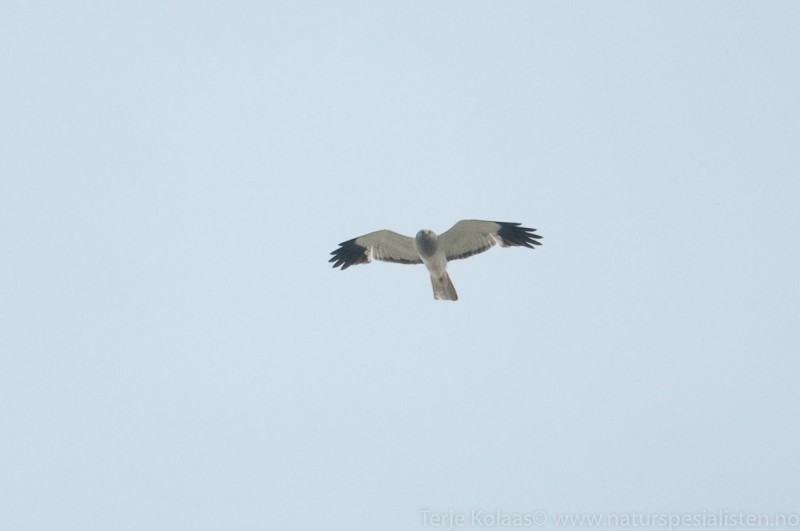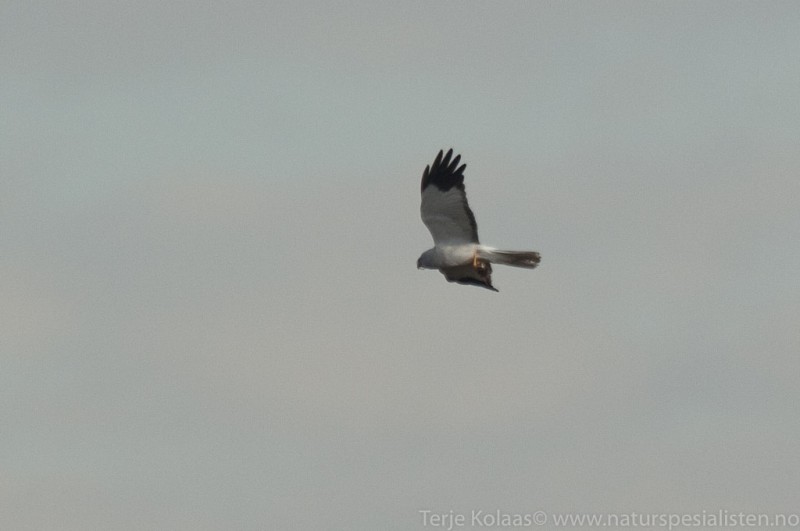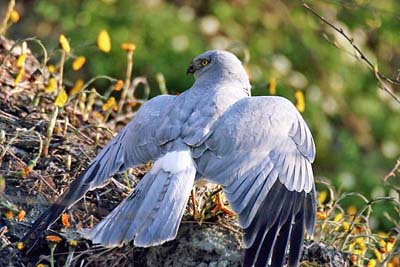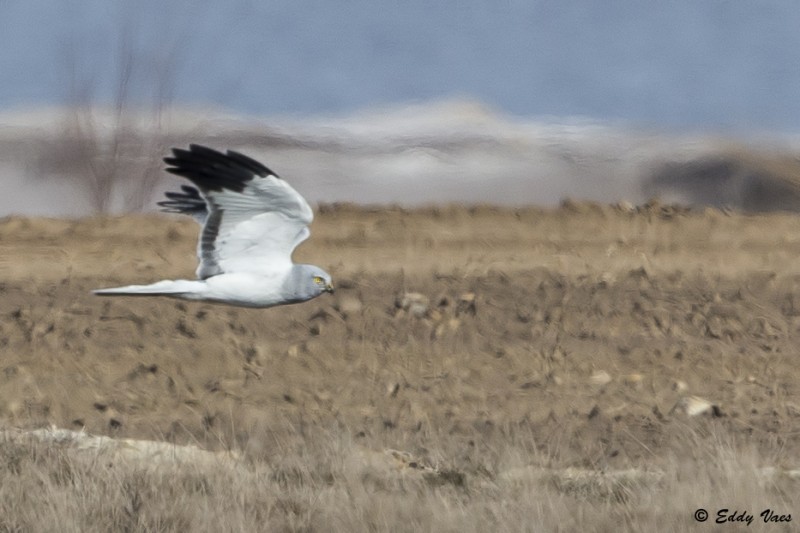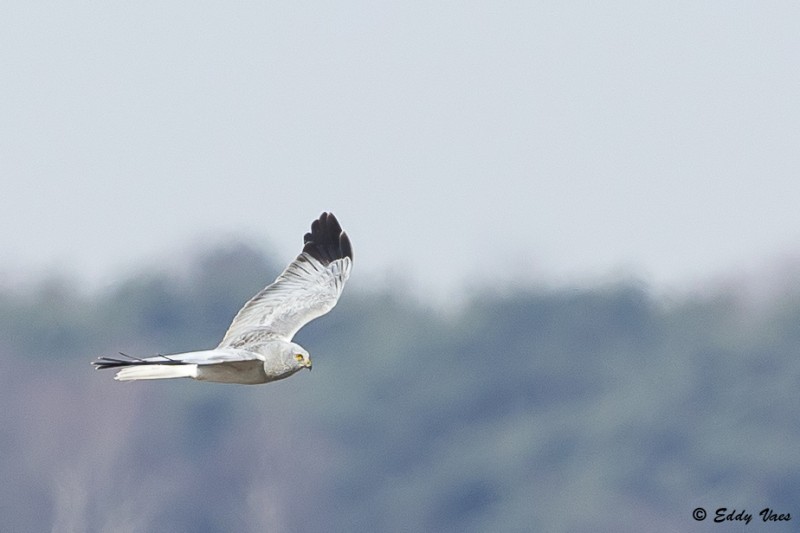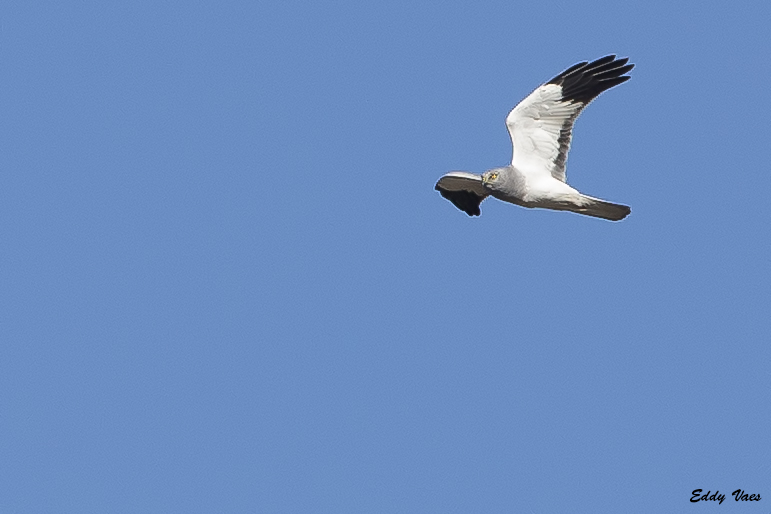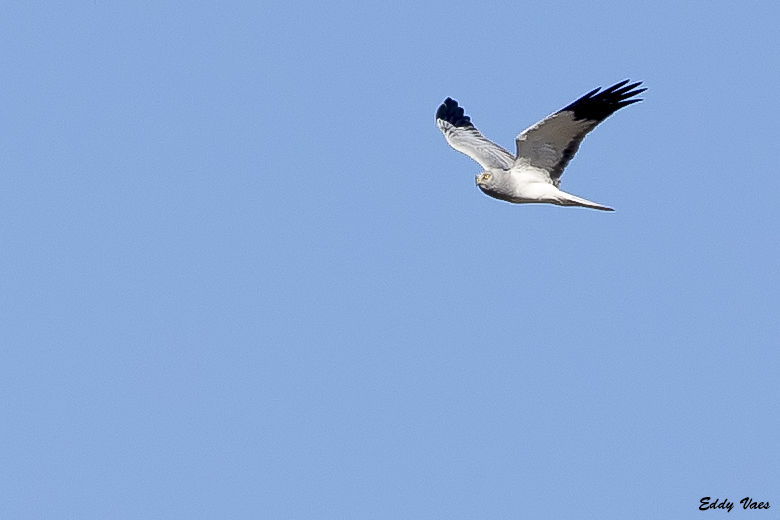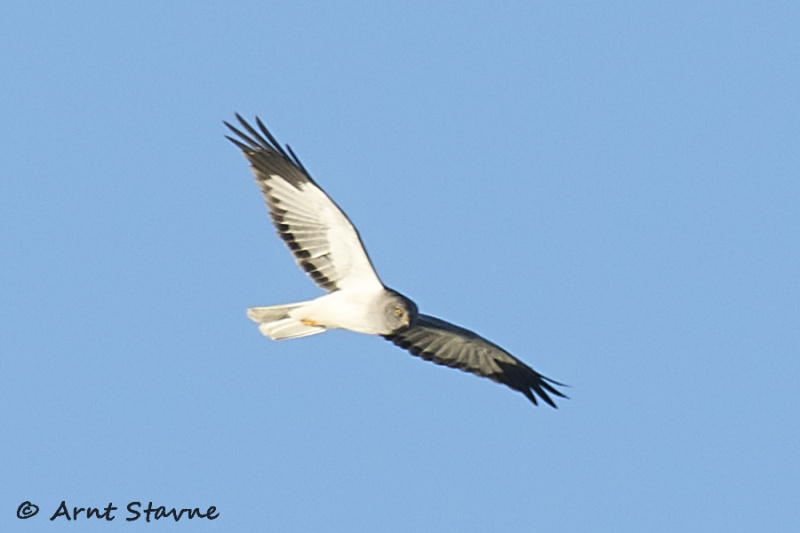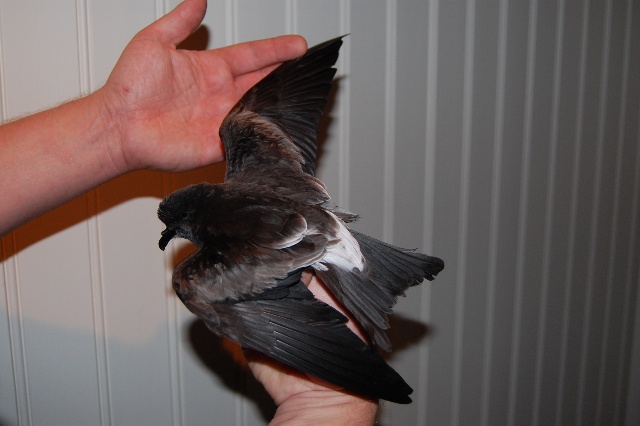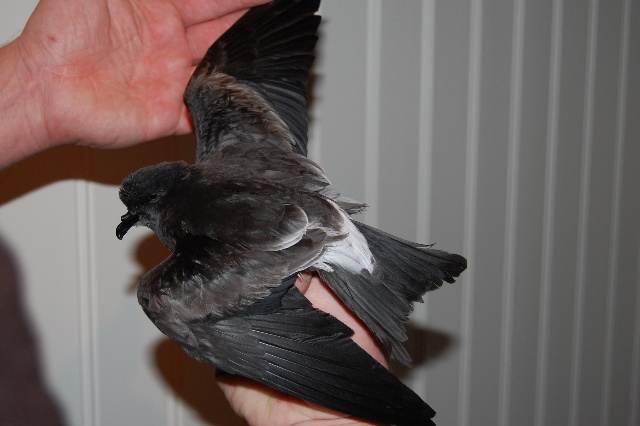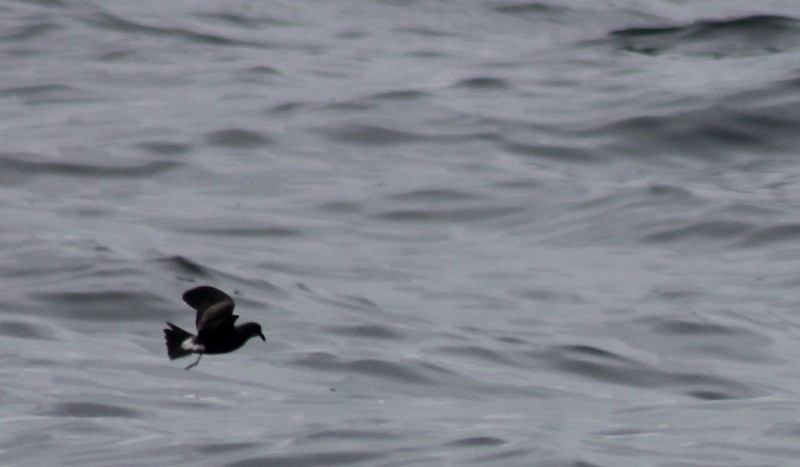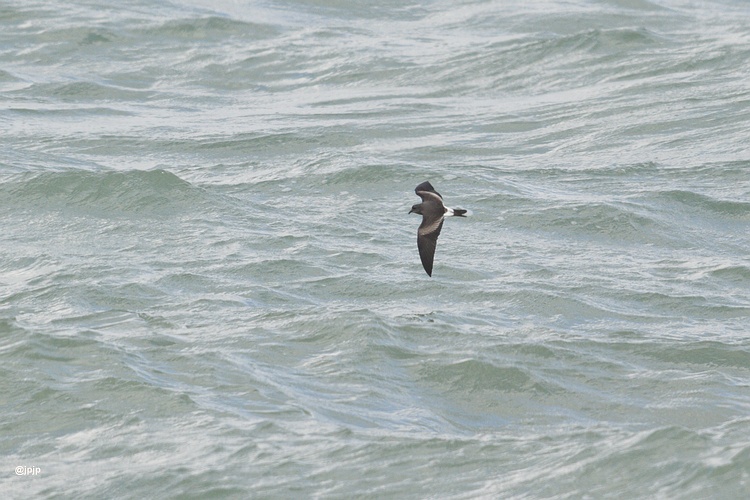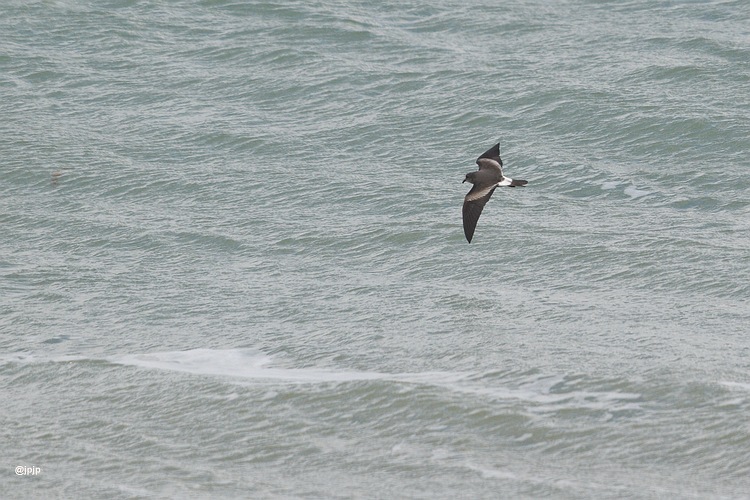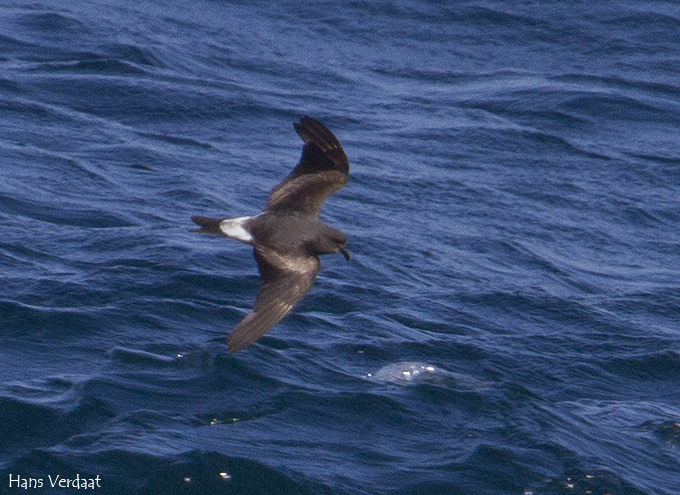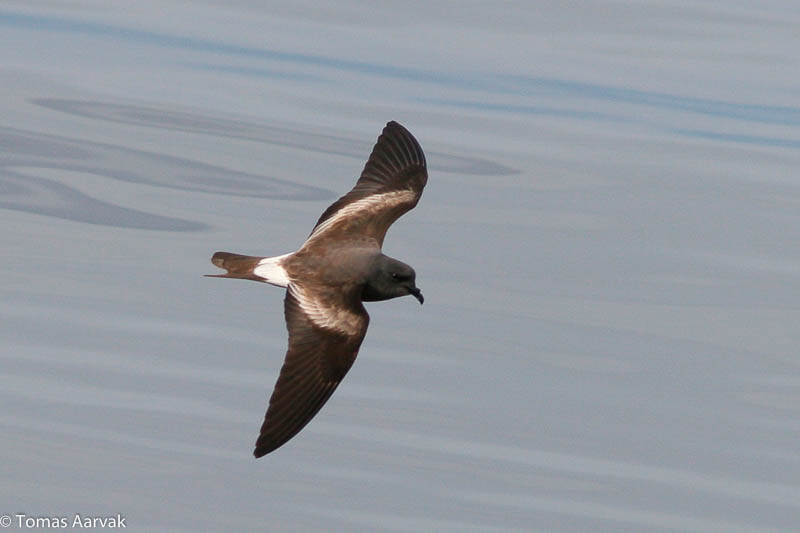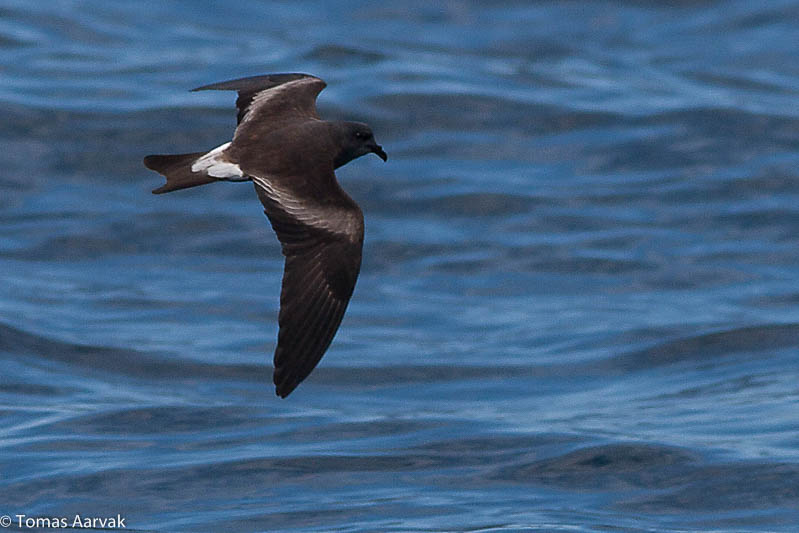Hen Harrier (Circus cyaneus)
Leach's Storm Petrel (Hydrobates leucorhous)
In all plumages: Glides with wings raised in shallow V. Shows 5 primaries. This makes the wing tip broader than in Pallid- and Montague's Harriers, and the wings seems shorter. (Note that moulting individuals may show only 4 primaries). Male; grey with black primaries, white rump and underparts, and broad black trailing edge to underwing. Note that subadult males may show partly black primaries like Pallid. Female; brown with white rump, barred tail and streaked underparts.
Sound:Mostly heard at breeding ground. Calls with quite soft series of "ke-ke-ke-ke". Also a wailing, squealing whistle, with emphasized first syllable.
Contact call:
Distribution:
Wikipedia: map (se also Xeno-canto below)
Ecology:Birdlife ecology
Links:
Observation.org Latest observations
Image search Flickr NB! May give other species
CCSounds:Creative Commons,www.xeno-canto.org,Bruno Durand,http://creativecommons.org/licenses/by-nc-sa/4.0/
Forked and fairly long tail. Clearly bigger than Storm Petrel, with more slender appearance and longer wings. Generally not as black, and shows brownish tone to plumage. The white rump patch is oval, has a weak grey center stripe, and does not reach as far down on the sides as in Storm Petrel. Light grey upper greater coverts form a wing-band. Underside of wings all dark. Flight pattern variable, with frequent changes in direction and speed. Sometimes glides like a shearwater but at other times shows surprisingly deep wing-beats. Does not patter surface, but will rest on water. Visits breeding ground only at night, and is usually only seen after storms.
Sound:Only calls at breeding ground. A series of accentuated cooing, interrupted by a squeaky "inbreath" and a loud, absurd, fanfare-like "kaaa-ka-ka-kaaa-ka".
Calls:
Distribution:
Wikipedia: map (se also Xeno-canto below)
Ecology:Birdlife ecology
Links:
Observation.org Latest observations
Image search Flickr NB! May give other species
CC
 English
English Albanian
Albanian
 Armenian
Armenian
 Bulgarian
Bulgarian
 Catalan
Catalan
 Croatian
Croatian
 Czech
Czech
 Danish
Danish
 Dutch
Dutch
 Finnish
Finnish
 French
French
 Georgian
Georgian
 German
German
 Greek
Greek
 Hungarian
Hungarian
 Italian
Italian
 Latvian
Latvian
 Lithuanian
Lithuanian
 Macedonian
Macedonian
 Norwegian
Norwegian
 Polish
Polish
 Portuguese
Portuguese
 Romanian
Romanian
 Russian
Russian
 Sami : Lule sami
Sami : Lule sami
 Sami : North sami
Sami : North sami
 Sami : South sami
Sami : South sami
 Scientific names
Scientific names
 Serbian
Serbian
 Spanish
Spanish
 Swedish
Swedish
 Ukrainian
Ukrainian


